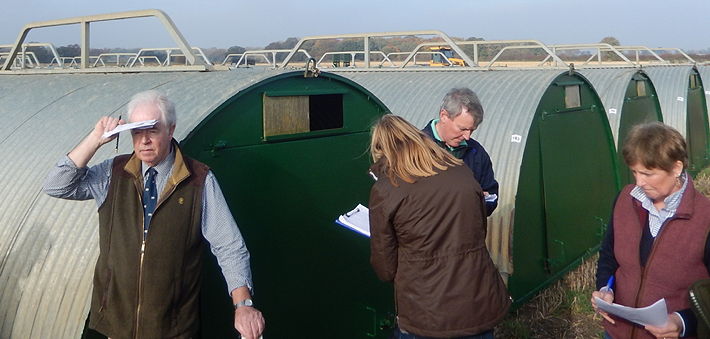As far as sellers are concerned, the going is getting tougher with plenty of storm clouds ahead and good news in short supply.
Although the latest SPP has moved up by 0.92p to stand at 159.88p, signs are emerging that prices could be heading for a reduction in the weeks ahead due to a number of significant problems which have to be faced throughout the pig industry supply chain.
This falling feeling is reflected in a reduction of 6 Cents/kg in the German producer price which now stands at 1.42 EUR, not helped a weaker Euro which traded on Friday worth 85.4p compared with 85.8p a week ago.
Weekly contribution prices have also slipped with 1p-2p reductions in some cases and some abattoirs just about standing on, with most now between 144p and 163p.
Spot bacon prices are also in retreat due to significant volumes of imported pork hitting these shores, but we are looking extremely uncompetitive when compared with imported carcasses heading this way at a significant discount and although regular spot sellers should be able to sell in and around 140p/kg, some one-off loads have dropped significantly lower than this.
Cull sow prices are also following this slippery downward slope with around 4p/kg being knocked off last week’s quotes with most between 58p and 60p/kg, not helped by a weaker Euro.
With reports of several producers having to leave the industry due to mounting losses, this is rubbing more salt into the wound with cull sows averaging little more than £80/head compared with replacement gilts still commanding prices of £150/head and more in places.
Although weaner values are holding at previous levels, due to a chronic lack of finishing space as well as labour shortages throughout the pig industry they will inevitably be affected, until the current oversupply situation improves.
RSPCA assured 7kg weaner contract sellers are receiving close to £40/head in some cases, although spot weaners are very hard to place with a yawning gulf between COP levels and actual pig prices.
Probably the only sector with a hint of any better news relates to cereals and proteins, which have in general terms dropped a touch in value with harvest just around the corner.
UK futures wheat prices have eased slightly with July feed wheat quoted at £202/t and September at £175/t.
Spot prices on an ex farm basis for old crop feed wheat have averaged £195.7/t.
Protein prices are very little changed with Hipro soya traded for August – October delivery at £364/t and May – October 2022 at £344/t.
Rapemeal is also holding at around £227/t for August – October and £234/t for November – April 2022.
And finally, staffing issues are continuing to cause havoc throughout the pig industry due to a number of factors, very few of which had been on the horizon a few months ago.
The decision to leave the EU following the Brexit vote has caused massive labour problems with large numbers of foreign workers returning to their homelands and reluctant to remain to the UK.
Added to this have been shortages of labour due to Covid restrictions and the lack of export opportunities to China and the Far East.
Feed costs are completely out of step with pig prices and although when harvest finally gets underway we could see some easing in feed costs, these are unlikely to be significant enough to lift the UK pig industry out of the red.
One more negative factor is the news that African Swine Fever has been confirmed in two German domestic pig herds and although this only relates to a very small number of pigs on two farms, it is still a step in the wrong direction.
ASF virus can be transmitted from wild boars to domestic pigs by direct or indirect contact, so hopefully every possible measure will be taken to nip these outbreaks in the bud,
This could however lead to further problems for the German pig industry who have been working hard to try and re-establish valuable pork export opportunities in China and Asia.




